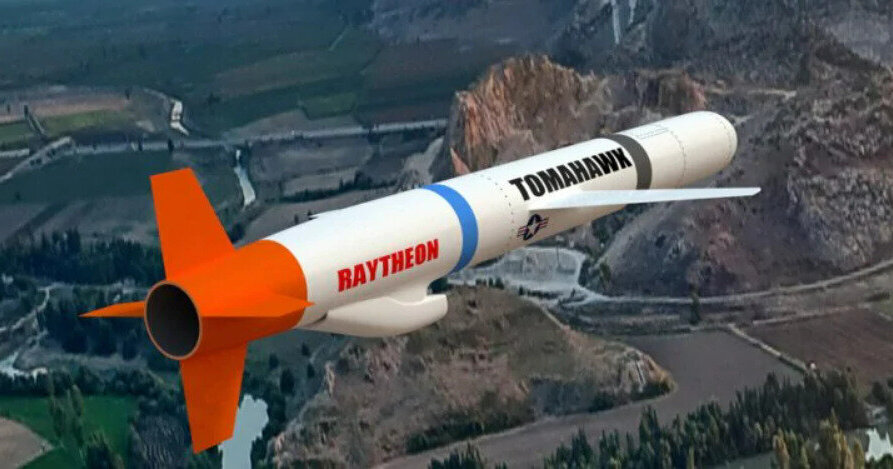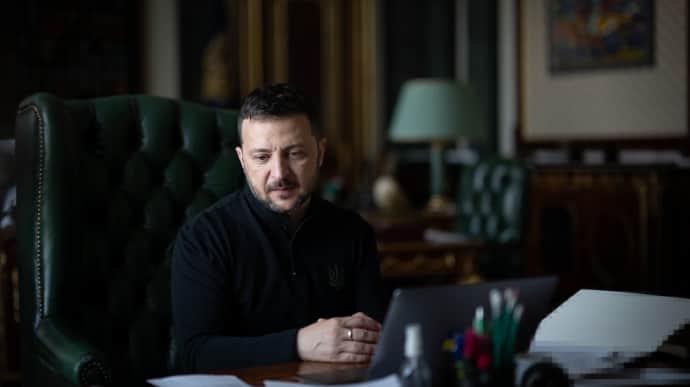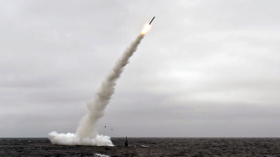Kremlin says Ukraine must be nervous if it's asking for US Tomahawk missiles
- First, it would likely escalate tensions with Russia, as the missiles’ long-range capability would allow Ukraine to strike deep into Russian territory, which Russia could interpret as a substantial escalation in Western support.
- This could lead Moscow to increase retaliatory actions, either through direct military aggression or indirect economic and cyber means targeting Ukraine’s allies. Secondly, U.S.-Russia relations would suffer, with Russia likely viewing this as crossing a “red line” in Western involvement. This tension might prompt Russia to counter the move by supporting U.S. adversaries or expanding its influence in strategically significant regions, such as the Arctic or Latin America.
- Third, the delivery would have profound implications for European security and NATO cohesion. Although NATO allies support Ukraine, advanced weaponry like Tomahawks could lead to diverging views within the alliance, as countries weigh the balance between aiding Ukraine and avoiding actions that may provoke Russia. Some European nations might even advocate for diplomatic efforts to prevent an escalation that could impact their own security. Furthermore, it could prompt a shift in Ukraine’s military strategy, allowing for a more offensive approach, which may complicate NATO support if perceived as high-risk.
- Fourth, it could set a precedent, pressuring NATO countries to supply comparable systems like Germany’s Taurus missiles to maintain alliance coherence. This could, however, lead to further internal debates as some members remain cautious about enabling strikes within Russian borders.
Finally, within the United States, the provision of Tomahawks would likely fuel domestic political debate. Some policymakers may argue against risking deeper involvement in the conflict, especially given the upcoming U.S. election and public opinion divided on support levels for Ukraine. Overall, the decision to supply Tomahawks would trigger complex political, military, and strategic repercussions across multiple fronts.
Ukraine Secretly Requests US Tomahawk Missiles to Enable Long-Range Strikes in Conflict with Russia.
Ukraine - Russia conflict
Ukrainian President Volodymyr Zelenskyy confirmed on 30 October 2024 that he had formally requested long-range Tomahawk missiles from the United States to enhance Ukraine’s ability to target critical Russian infrastructure and deter future offensives. By acquiring these missiles, Ukraine could extend its strike range, with the potential to reach deep into Russian territory. However, this request carries substantial implications: while their delivery would provide Ukraine with crucial strategic depth, it would also intensify U.S. involvement, risk escalating tensions with Russia, and pose logistical and strategic challenges for the U.S., already facing military demands in other regions of the world.
- Currently, Ukraine lacks the Typhon ground-launch systems needed for such deployment, and the U.S. Army itself possesses only two Typhon batteries, each comprising four launchers, making it unlikely that an entire battery would be provided to Ukraine.
- However, the Typhon launcher is based on an improvised design: it utilizes the universal Mark 41 vertical launch system, originally designed for U.S. Navy surface ships, but mounted on a wheeled chassis for ground mobility.
- This setup suggests that alternative, non-standard solutions could be explored, similar to the makeshift "FrankenSAM" air defense system.
Ukrainian military analyst Serhiy Kuzan points out that this long-range strike capability could help balance forces, much like Russia’s Kalibr missiles, which have inflicted considerable damage on Ukrainian infrastructure since the conflict began.
- Adding to this perspective, a recent analysis by the U.S.-based Jamestown Foundation highlights twelve key factories in Russia that support its missile industry, located between 800 and 2,400 kilometers from Ukraine's border.
- Experts stress that hitting these facilities effectively would require advanced long-range capabilities.
- However, Ukraine has also sought U.S. permission to conduct strikes directly within Russian territory—a request Washington has not yet granted.
- If the U.S. were to supply Tomahawks, it could nevertheless be interpreted as informal permission for Kyiv to strike deep into Russian territory, despite the lack of official authorization.
However, logistical and material constraints make a large-scale delivery of Tomahawks to Ukraine unlikely. U.S. officials indicate that the number of missiles available is limited due to ongoing commitments in the Middle East and Asia. For an effective deterrent, Ukraine would require a significant number of missiles to pose a credible threat. Practically, several dozen missiles would be needed to establish a sufficiently dissuasive offensive capability, particularly against highly defended targets dispersed within Russia. Nevertheless, even in limited numbers, Tomahawks would offer Ukraine considerable tactical advantage, enabling targeted strikes on key military sites or command centers, potentially disrupting Russian logistics.
30 October 2024
Zelensky secretly demanded Tomahawk missiles from US – NY Times
30 Oct, 2024 13:54
Home Russia & FSU
Zelenskyy complains about Tomahawk request leak
Kiev’s request for long-range weapons was brushed off by the White House, according to the New York Times
Ukrainian leader Vladimir Zelensky expressed frustration on Wednesday with the fact that classified details of his ‘victory plan’ in the conflict with Russia were leaked to the Western press.
- The paper’s sources described the request as “totally unfeasible.”
- Provision of such weapons, which have a range of up to 2,400 km, was described as being necessary to constitute part of the conventional deterrence forces requested by Zelenskyy.
Russian President Vladimir Putin has warned the US and its allies that Moscow will consider any Western-facilitated strike deep inside Russia as an attack by the parties who supplied the weapons.
Zelensky claimed that the leak came after “many countries” supported his ‘victory plan’.
- However, numerous Western media reports and some officials have said that it was largely rejected.
- The proposal requires an immediate invitation for Ukraine to join NATO and other measures that would increase Western involvement in the conflict.









No comments:
Post a Comment